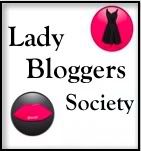By Jean Stanula, Special Guest Blogger to The Body Logic
After an intense workout, I stand in front of the row of coolers in the 7-11, seeking a beverage to quench my well-earned thirst. My eyes scan row after row of liquid satiation searching for the 20oz that will really hit the spot. When my eyes trace the clean and precise curves of the Smartwater bottle, settle softly on the ocean blue label, an image of Jennifer Aniston – beautiful, confident, relaxed – seeps into my brain and I reach for the bottle. I know I’ve done it, and maybe I scold myself a little, but I think Jennifer Aniston is a trustworthy character, and she just wants me to drink this delicious, clean, perfect water.
It is an undeniable fact that celebrity and popularity affect every arena of our lives. This is nothing new – humans have been worshipping both Gods and men that seem to embody a betterness, a higherness, a coolerness, forever. In present times, we most often recognize the negative aspects of this hero worship – children killed attempting a professional wrestling move or a skateboard trick, young people acting out violent song lyrics, or our desensitization of domestic violence issues that we see so often in celebrity tabloids.
Once in a while, and I’m not saying Jennifer Aniston’s promotion of Smartwater counts in this camp, we find celebrities using their influence as positive leadership. I’m talking about the great global goliaths who have raised money and brought awareness to important issues such as Lance Armstrong, Bono and Bill and Melinda Gates. When celebrities find causes close to their hearts and use their influence to get us to wear yellow or buy red, their influence manifests itself as philanthropic guidance rather than the useless over consumption that results from sneaker ads or car endorsements.
Sadly, it seems that many non-profits and important causes can’t get proper promotion or financial support without the backing of an actor, athlete, or recording artist. I picture all of these organizations like puppies huddled together in a cardboard box, pawing and whimpering, stretching to be seen and plucked from obscurity by someone whose face can be found on a t-shirt. I wish consumers would also pay attention to organizations without celebrity endorsements, but I certainly can’t deny the effectiveness of such … If Lance Armstrong could do for poverty, homelessness, religious intolerance or issues of equality what he did for prostate cancer in this country, there is no doubt we would be living in a better world.
All causes can’t be as “popular” as HIV/AIDS or breast cancer, but some celebrities took a stand this past week to bring attention to really important issue – the portrayal of women and girls in the media. Joining together with worthy organizations, Girl Scouts of the USA and The Creative Coalition, a handful of celebrities such as Felicity Huffman, Seth Green, Rachael Leigh Cook and Chuck D. spoke out. They even took the time to recognize their absurd power in media, asking viewers to “Watch What You Watch.” Here’s the video:
It is awesome to see these recognizable faces taking on the issue of the media’s portrayal of women and girls. And, I have to say, it’s great to see men taking part in the promotion, too, which reminds viewers that an issue about women isn’t solely a women’s issue. They urge us to be more socially conscious, more media savvy, to take off the blinders we all sometimes wear when we want to just “enjoy” TV, magazines and movies. The campaign reminds us to filter and reject some of the media stream in which we are constantly treading because we do what celebrities say (right?) so we should do this too. We should be smart. Think smart.
As a strong supporter of the Girl Scouts (an organization which, for the record is not at all affiliated with the bigoted Boy Scouts of America) I am happy to see them enjoy a little celebrity backing. The issue of the mental and physical health and safely of women and girls should be just as “popular” as some of America’s favorite charities. Hopefully, this campaign, and others like it, will stick in the minds of consumers when they witness inappropriate or offensive portrayals of women in media (just like Jennifer Aniston does in mine when I see a bottle of Smartwater) and inspire them to think twice about buying what the media is selling.
 Jean Stanula is a non fiction writer, blogger and nonprofiteer with an interest in issues of equality. She is a weekly columnist for The New Gay, where she writes under the catchy pseudonym Not Your Average Prom Queen, and sporadically records her
Jean Stanula is a non fiction writer, blogger and nonprofiteer with an interest in issues of equality. She is a weekly columnist for The New Gay, where she writes under the catchy pseudonym Not Your Average Prom Queen, and sporadically records her
personal ramblings and creative writing at That Makes Me Nervous.







Leave a comment
Comments feed for this article